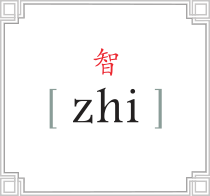Kenya Chai - Silky Single Sachets
Our delicious Kenya Chai in convenient, earth-friendly pyramid bio-sachets.
This is yet another Zhi Signature Blend that takes flavor to new heights.
Ingredients: Red rooibos*, cinnamon*, cardamom*, ginger root*, cornflowers*, stevia leaf*, and natural cinnamon, ginger, and vanilla flavors
(*Organic)
Zhi Signature Blend Kenya Chai begins with our Red Rooibos and we fold in copious amounts of cinnamon, cardamom, ginger root, blue cornflowers, stevia leaf, and vanilla to create an intoxicating herbal tisane. Our rooibos chai is a lighter version of the traditional chai with no caffeine and a slightly milder body.
Resplendent with color, aroma, and flavor, Kenya Chai is designed to take chai to the next level. And you too! Now this is a rooibos chai you can dive into and indulge at will. Zero caffeine, naturally. Slightly sweet. So go for it!
Available in a 15 count Sachet Tin, or stock up with a resealable pouch of 40, 100, or 250.
aka Red Tea Chai, Red Bush Chai, Rooibos Chai
AKA Sweet Dessert Delight; Red Tea, Red Bush Tea, Desert Blend
Water: 208°F | Leaves: 1 sachet per 12 ounce cup | Infusion Time: 4 - 5 minutes
Basic Steeping Tips
- Use filtered or spring water, whenever possible
- Don't over-boil water
- Remove leaves after recommended time (adjust to taste)
- If you want stronger tea, use more leaves instead of steeping for a longer time
Leaves can be re-steeped 2-3 times resulting in various flavor differences. Don't throw out those leaves until they have given it all up!
Red tea (Rooibos/Red Bush) has been researched a great deal over the last few years. Results indicate that Rooibos has the highest levels of antioxidants of all infused beverages. Higher in fact than Green Tea.
As such, it displays the highest anti-aging properties. Along with the fact that it is 100% caffeine-free, well you can enjoy this delicious cup anytime of day.
Rooibos plant grows only near the Cape of Good Hope in South Africa. It was first noted by botanist Carl Humberg in 1772.
A century later, Benjamin Ginsberg, a Russian immigrant, realized its marketing potential, and in 1904 began offering it as an herbal substitute to tea.
The difficulty of shipping tea during the Second World War had boosted demand for Rooibos, which began to be referred to as Red Bush Tea, or simply Red Tea.
In Japan, Rooibos is believed to aid longevity, and is known as Long Life Tea.





